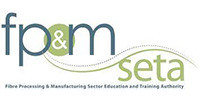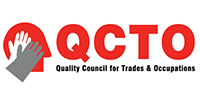Many people tend to forget just how dangerous our world can be at times, even while clocking in the hours at their place of work. In almost all forms of industries currently taking up the working world, safety officers are required to be on-site in order to keep their fellow colleagues protected from even the slightest risk of a workplace accident. By enrolling yourself into EMCARE’s safety officer course, you could be well on your way into this fulfilling and lucrative line of work while being the one in charge of keeping those around you as safe as can be.
Why do so Many Industries Require those with Safety Officer Course Experience?
As a result of how fast-paced the working world has become within just the past few decades, it can be surprising to see just how few people are actively concerned over the physical safety of themselves as well as those around them. This may be the result of how much time is spent focusing on their job criteria, often taking up their entire thought process throughout the day. It is because of this that there are those whose main concern is the general wellbeing of those around them, so much so that they take up a safety officer course in order to train themselves as a means to pursue the field as their main career.
Those with such a deep passion for health and safety have become a hot commodity within the professional world, as they allow others in more dangerous industries to take their mind off of any potential risks throughout every waking moment of the day. A health and safety officer is able to provide those around them with a much-needed sense of safety and protection, both physically and mentally, giving them the opportunity to do their work as efficiently as possible with the aid of a clear mind. Unfortunately, many CEO’s all over the world assume that a health and safety officer is only required if their company employs fairly large groups of people, or if their employees work in dangerous conditions or operate heavy machinery.
This, however, could not be further from the truth. By looking at the Department of Labour’s Occupational Health and Safety Act 181 of 1993, section 17.1 clearly states that “every employer who has more than 20 employees in their employment at any workplace, shall, within four months after the commencement of this Act or after commencing business, or from such time as the number of employees exceeds 20, as the case may be, designate in writing for a specified period health and safety representative for such workplace, or for different sections thereof.” Once a business has grown to such an extent, especially in an environment where the safety of many people is involved, it is absolutely crucial that someone with ample safety officer course experience, the right credentials, as well as a passion for the field, is hired and appointed as soon as possible.
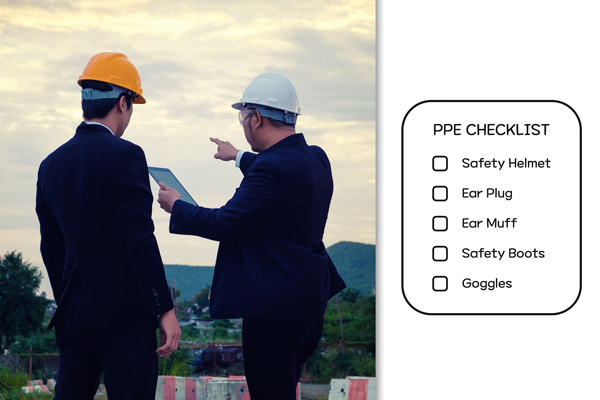
By having one or more skilled individuals that fill these requirements, your business can be expected to experience a number of benefits that are otherwise rather difficult to attain. These additional workplace benefits often come in the form of one or more of the following:
- The value of your brand is increased by safer working environments
- Clients or partnered businesses are far more likely to seek your help and services if it is made transparent as to how workplace safety is actively encouraged and sought after.
- Clients and businesses are more easily won over
- There are many successful businessmen and women around the world that prefer to only work with companies that value the safety of their employees and remain compliant with the previously mentioned occupational health and safety acts.
- Your company’s most important assets are kept safe
- It should come as no surprise that the most valuable aspect of any working environment is the employees themselves, so it is important to invest back into their safety and general wellbeing while in the workplace.
- Insurance claims from your employees begin to decrease
- It goes without saying that if your employees work in an environment where their health and safety are not at risk, insurance claims and medical bills become far less common.
- Increase in general productivity
- By actively showing that you are dedicated to those working around you, it can build a sense of trust and create an environment where dedication is more easily attained.
- Employees are happier when they feel safe+
- Studies have shown that it becomes far easier to enter into a flow state where work is completed with ease and without hassle when employees feel happy and at peace with the environment they find themselves in.
- Absenteeism is reduced significantly
- When injured or feeling ill, employees become far less willing to come into work, especially if the work environment is hazardous and does not accommodate for any health issues.
- The work environment is kept to a much higher standard
- As a result of the strict requirements that businesses need to follow when under the supervision of an official who has graduated and earned their qualifications through a safety officer course, these working environments immediately appear far cleaner, safer and less prone to any potential risk of a workplace injury.
Which Industries Require the Help of Health and Safety Officers the Most?
For those that find themselves working in offices, while still incredibly important, the need for a well-trained professional with adequate hours and qualifications in health and safety officer course training may not be as dire as in other industries that require their employees to consider a more “hands-on” approach to their labour. Industries that are more physically intensive come with a significantly higher level of safety concerns as employees come into contact with the risk of serious injury on a more frequent basis, all for the sake of earning their livelihood.
The first of these industries, starting in no particular order, would have to include manufacturing, a field of work that requires its employees to handle textile and furniture as well as the production of car parts, just to name a few. With only a single industry being at the centre of so many different fields of work, the number of associated on-site risks only begins to increase. This is because heavy machinery is to be operated and worked alongside, with hazardous materials often needing to be handled and used while in sometimes dangerous environments too.
Although it is very true that this industry is slowly making its way towards automation in practically all its fields, which in turn also decreases the risk of employees becoming hurt or injured, workers that still find themselves employed in such industries are still in need of reliable and consistent protection. Another high-risk field that places a ton of reliance upon those with health and safety officer course training would have to be the mining industry. While it is safe to say that health and safety requirements have been iterated upon and improved in countless ways since the Industrial Revolution, where the few safety measures put in place lead to countless on-site injuries and even deaths, modern mining industries still place a great deal of risk to those within it. This is because mineshafts, even on their own, can still be incredibly dangerous.
We have all heard of incidents where miners are caught and trapped in cave-ins as well as underground floodings, but many people tend to forget that these mineshafts regularly expose miners to large quantities of dust, mercury and radon particles in the air, which gets breathed in at differing amounts on an almost continuous basis. This can lead to serious health consequences that may only come to light in later years or decades. Unfortunately, however, some companies that place profits on a higher priority than their employees’ health tend to ignore the countless long-term side effects that are associated with mining by not providing workers with the proper precautions and equipment.

Another industry that has become famous for the ever-increasing number of on-site accidents, injuries and deaths would be the construction industry. This line of work places its employees in environments with unfinished construction being worked on over extended periods of time. By nature of this, these environments are inherently far more dangerous has health and safety precautions within these constructions have not yet been attended to.
During the job, however, employees are placed alongside plenty more health risks as they are often required to work at high altitudes, an area of construction that has seen half of all construction workers experience accidents within just the United States alone. Alongside this, workers are also expected to manipulate, handle and work with sometimes hazardous materials, introducing a slew of additional health consequences down the line. Thankfully, this industry has taken many steps to avoid such situations from taking place thanks to newly imposed regulations, requiring all workers to be properly equipped and trained before entering the site.
An industry that also poses a great deal of risk to its employees, one that has become far more appreciated and respected over the past two years due to the recent worldwide COVID-19 pandemic, would be the health service industry. According to multiple peer-reviewed studies that have taken place multiple times over the years, it has been recorded that working such long and gruelling hours in incredibly stressful environments that leave them exposed to sickly patients, employees often experience a heavy toll on their health, both physically and mentally. In studies done before the COVID-19 pandemic, it was recorded that 30 in every 100 000 doctors and other hospital staff had to be treated due to infections that range from minor to deathly serious.
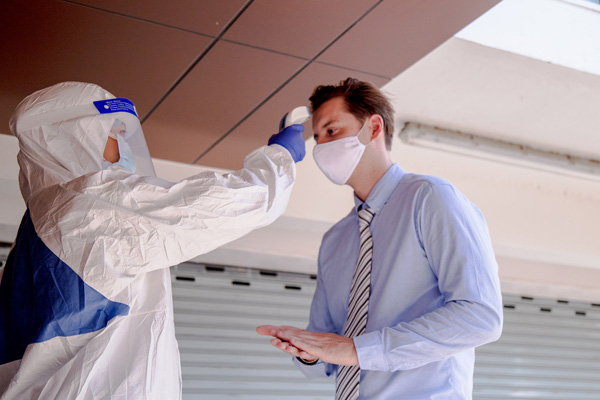
In recent years, however, especially since the start of the COVID-19 pandemic, reputable hospitals have begun maintaining environments in a clean and sterile state. While negligence and other risks that go unaccounted may still be present to some degree, employers place themselves in a highly beneficial position when making sure to provide their workers with medical screenings on a regular basis.
Enrol in EMCARE’s Health and Safety Officer Course Today
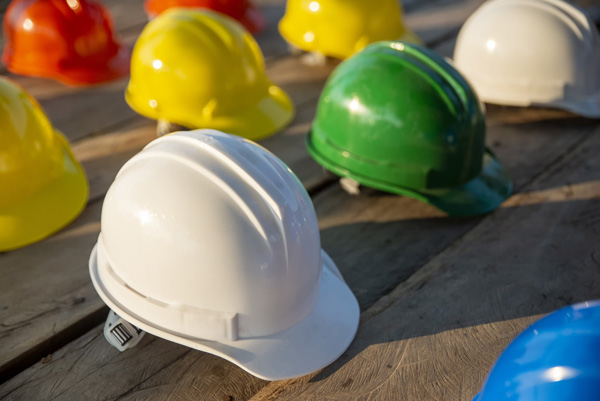
As you may be aware from reading through this article, becoming a health and safety officer is no small task and requires a lot out of those that fulfil these roles. With an EMCARE Health and Safety Officer course or two, you can expect to gain the knowledge, confidence and experience needed to attain and exceed in this widely respected role in the workforce. To enrol into an EMCARE Health and Safety Officer course, you simply need to head on over to this very website’s homepage and click on the “Contact Us” button found in the top right corner. From here, you can choose to get a hold of one of our friendly consultants through any of the methods provided you find most convenient.







